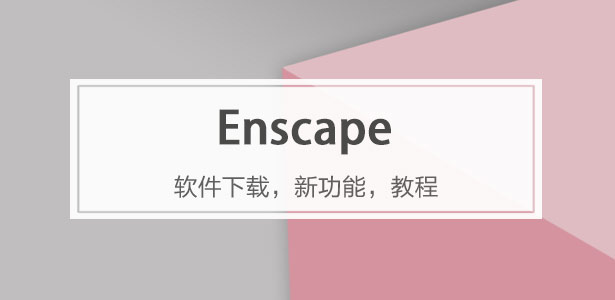
下載app免費領取會員





設計單位? Manifestation of Fluid Architecture (M:OFA)
項目地點? 印度新德里
建成時間? 2024年
建筑面積? 約60平方米
本文英文原文由M:OFA提供,由有方編譯。
和許多21世紀初最具說服力的作品一樣,愛之泉(Fonte D’Amore)庭院并沒有以龐大的體量來展現其設計的野心。相反,這個位于德里住宅核心、面積僅60平方米的庭院,由M:OFA Studio的主持建筑師Manish Gulati設計,通過記憶、結構邏輯與數字工藝的精妙交匯,展現了如何將平凡轉化為靜謐而非凡的存在。
Like many of the most persuasive works of the early twenty-first century, Fonte?D’Amore does not broadcast its ambitions through sheer size. Instead, this modest 60-square-metre courtyard carved from the heart of a Delhi dwelling, by Manish Gulati, Principal Architect at M:OFA Studio, demonstrates how a carefully weighted convergence of memory, structural reasoning and digital craft can transform the ordinary into the quietly extraordinary.


設計緣于業主個人化的敘事:業主希望重現五年前他們在羅馬特雷維噴泉投幣許愿的瞬間。設計師并未選擇直白的引用,而是將記憶轉譯為空間與建構語言。從這個意義上看,該項目延續了從意大利文藝復興庭院到德里Lutyens花園住宅的譜系:以石、水與光將私人神話呈現出來。
The commission arose from an intimate narrative: the clients wished to recall the moment, half a decade earlier, when they had tossed a coin into the Trevi Fountain. Manish could have easily succumbed to the literal quotation. Instead, he translated the memory into spatial and tectonic terms. In this respect the project belongs to a lineage that stretches from the Italian Renaissance courtyards to Lutyen’s garden homes of Delhi: private myth rendered in stone, water and light.
業主唯一始終堅持的要求是噴泉的聲音,以及營造一個“帶有文藝復興感”的雕塑氛圍。因此,最初的AI生成的情緒板以特雷維噴泉為圖像起點,嘗試了無數人物與水流的組合,最終形成了一個能夠與房屋多樣外殼對話的方案。
The client’s lone, consistent request was the sound of a fountain and a sculptural milieu “that feels Renaissance.” Early AI mood boards, therefore, began with the Trevi Fountain as iconography, testing countless compositions of figures and water before settling on a scheme that could converse with the house’s heterogeneous shell.

項目的底層保持對稱,呼應文藝復興的秩序感;而隨著結構上升至三層,則逐漸溶解為富有表現力的云狀幾何。底部的高大文藝復興拱券在上層轉化為鏈狀曲線,營造出夢境般的過渡,仿佛達利筆下的世界彼此融化。整個轉變無縫自然:石材表面扭轉彎曲,形成雕塑般的外殼,將住宅的每一層的視線串聯起來。
At the ground level, symmetry prevails, an ode to Renaissance sensibilities. But as the structure rises through three levels, it dissolves into expressive, cloud-like geometry. Where the base registers tall Renaissance arches, the upper tiers warp into catenary curves, creating a dreamlike transition reminiscent of Dali’s worlds melting into one another. The transformation is seamless: stone surfaces twist and arc, forming a sculptural envelope that visually connects each floor of the home.

站在陽臺可以俯瞰庭院,天花上開鑿的圓形開口將自然光引入,使光影在墻面上舞動。茉莉藤攀爬于層疊的綠墻間,散發著芬芳。綠植分布于底層、中層露臺與屋頂平臺,構成一段由下至上的香氣與柔美之旅。庭院幾近冥想般的氛圍,邀請人們在此久坐,聆聽水聲與鳥鳴,看光影流轉,代替城市的喧囂。頂部穹頂既是皇冠又是引導,其四個天窗如同風口,引入清風。
Balconies overlook the volume, and carved apertures in the ceiling, strategically placed oculi—invite daylight to dance across the walls. Jasmine creepers climb along tiered green walls, perfuming the air. Planters are stacked across levels—on the ground, intermediate terraces, and rooftop trays, creating an upward journey of scent and softness. The courtyard becomes almost meditative, inviting long moments of stillness where the sound of water, birdsong, and shifting light replace the city’s noise. The dome overhead acts as both crown and conduit, its four oculi serving as wind catchers that draw in breezes.

在德里酷熱的夏季,庭院成為一處調節氣候的涼爽空間。屋頂四個圓形開口如同捕風器;噴泉蒸發的水霧使體感溫度下降數度。自然光也通過這些孔洞被柔化,掠過石面,令其如同連續的織物般一體。這里的建筑古老卻又新穎:被動式氣候策略,借助當代模擬得到重新演繹。
In Delhi’s oppressive summers the courtyard becomes a tempered room of air. Four circular openings at roof level act as wind-catchers; evaporative mist from the fountain lowers felt temperatures by several degrees. Daylight is modulated through the same apertures, grazing the stone so that it reads as a single continuous weave. Here again the architectural lesson is old and new at once: passive climate response re-tooled through contemporary simulation.



流動形態背后隱藏著嚴謹的數字設計骨架。輕質鋼格殼支撐起有機外皮,被構思為“骨骼或葉脈”,由直線段組成以簡化施工并減少材料浪費。石材表面通過AI生成的情緒板、3D銑削模板,以及1:1的陶土模型實現,這些模型經3D掃描確保精度。雕塑則逆轉了常見的數字到實體流程:AI生成的初始概念成為藝術家Shersingh的形式線索,由其手工雕刻完成,恢復了手工的溫度,建立起算法與工藝之間的對話。
Behind the fluid forms lies a backbone of rigorous digital design. The organic skin is supported by a lightweight steel parametric gridshell, conceived as the “bone or leaf-vein” of the space, made of straightened segments to simplify fabrication and reduce material waste. The stone surface itself was realised through AI-generated moodboards, 3D-milled formwork, and life-size clay prototypes, which were 3D-scanned for precision. The sculptures reverse the usual digital-to-physical workflow: initial AI concepts became formal clues for artist Shersingh, who hand-crafted each piece, reinstating the touch of the hand and creating a dialogue between algorithm and craft.



愛之泉庭院拒絕許多參數化設計常見的戲劇化堆砌。它的價值在于克制,在于數字流程如何扎根于清晰的功能、合理的結構與可靠的工藝。形式、性能與詩意,在這里被精心考量而非含混不清。在這個項目中,人們能感受到一種隱含的觀點:算法設計的未來,依賴的不是炫目的曲面,而是記憶、氣候與材料智慧的靜默融合。
Fonte?d’Amore resists the theatrical excess that has come to characterise much parametric production. Its virtue lies in restraint, in the way digital procedure is anchored to a precise programme, a measured structure and a credible craft. Form, performance and poetics are calibrated rather than conflated. One senses in Manish’s work an implicit argument: that the future of algorithmic design will depend less on spectacular curvature than on the quiet integration of memory, climate and material intelligence.


現代建筑始終與其歷史保持著長久的對話。通過將特雷維噴泉的記憶帶入德里、將高迪的靈感融入數字計算,這個項目提醒我們:延續并不是創新的敵人。相反,它表明:當技術手段服務于生活體驗,當歷史參照被內化而非直譯時,建筑依然能夠創造出既屬于當下、又超越當下的形式。
Modern architecture is a long conversation with its own history. By filtering Trevi through Delhi, and Gaudí through computation, Fonte?d’Amore reminds us that continuity is not the enemy of invention. On the contrary, the project suggests that when technological means are placed in the service of lived experience; and when historical reference is internalised rather than illustrated, architecture may still produce forms that are both of their moment and beyond it.

設計圖紙 ▽


完整項目信息
Project Name: Fonte D’Amore
Architect: Manifestation of Fluid Architecture (M:OFA)
Location: New Delhi, India
Principal Designer: Manish Gulati
Area: 645 square feet
Photography: Ekansh Goel
本文英文原文及圖片由Manifestation of Fluid Architecture (M:OFA)授權有方發布,編譯版權歸有方空間所有。歡迎轉發,禁止以有方編輯版本轉載。
本文版權歸腿腿教學網及原創作者所有,未經授權,謝絕轉載。

上一篇:中國院+中國建研院新作:2025日本大阪世博會中國館
下一篇:[db:標題]






推薦專題









































